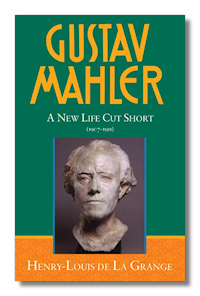Mahler triumphant
A great composer nears the end of a great biographical voyage
By Hugh Wood 
The long voyage is nearly over, and the great ship is at last approaching land. But we are not quite yet in harbour; for Henry-Louis de La Grange's revision of Gustav Mahler: Volume One still awaits translation into English. Then the labours of a dedicated lifetime may be at an end. Meanwhile, we have here, at over 1,750 pages, the longest of the four volumes, and in every way the climactic one. So much in it is new, or newly re-explored, or freshly and radically re-interpreted. The portrait that emerges is surprising because it is so straightforward: that of a great conductor at the height of his powers and a great composer striking out boldly into new territory. What has previously been obscured and diminished by mythmaking, melodrama and malice is now at last given its full stature. That this new depiction is the underlying intention of the author is made quite clear from the first page: to realize how well he has succeeded, it is necessary to read the whole book. But this is not just a biography: it is more of a Mahler-Lexicon, almost a history of the age. De La Grange has found himself irresistibly drawn down every avenue that offers itself, and his interests are wide. By the time one has read through all thirty-three of the Appendices, and has discovered in the last one the recipe for Mahler's favourite dessert (Marillonknödel – and it sounds delicious), one feels not only triumphant but replete.
Read more about this at the Times Online website:
http://entertainment.timesonline.co.uk/tol/arts_and_entertainment/the_tls/article4429303.ece















